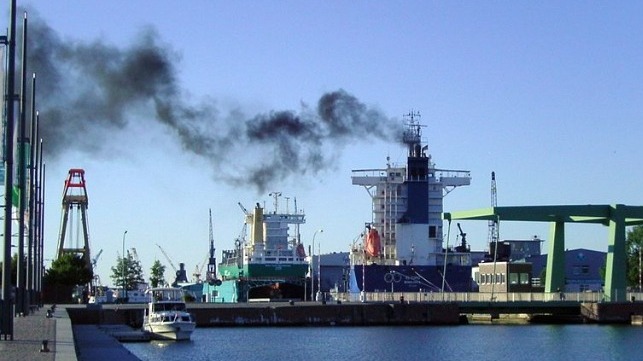ITF Joins Call for Climate Action

As world leaders prepare to gather in Scotland for the COP26 conference next week, the International Transport Workers’ Federation (ITF) has added its voice to the industry's call for action on climate-changing emissions.
The shipping industry needs to set ambitious targets to help prevent damage from climate change, ITF cautioned in a new position paper launched Friday.
There are over 50,000 cargo ships on the world’s oceans, the vast majority of which run on VLSFO or HFO. Taken together, these ships emit as much greenhouse gas into the atmosphere as some nations.
After a concerted industry effort to keep shipping's CO2 under the governance of IMO, vessel emissions were removed from the Paris Agreement before its passage in 2015. Six years later, the ITF is calling for the industry and its regulators to commit to the Paris target of zero carbon by 2050 - a goal substantially more ambitious than the IMO "ambition" of a 50 percent reduction by 2050.
“People who work at sea witness the impacts of climate change every day and are extremely concerned that their industry is not acting quickly enough,” said Stephen Cotton, the ITF’s General Secretary. “Huge changes are needed swiftly to switch the shipping industry away from fossil fuels. Seafarers have the passion, knowledge and ideas to help move the industry to a carbon-free future . . . As working people, we deserve a planet that is safe to live on.”
The ITF’s position paper set out eight "fundamental principles for a just transition" to make sure the decarbonization of the industry includes workers. The shift will reshape skills and career pathways as the industry shifts employment from fossil fuels to alternative fuel bunkering systems.
Technical change will have significant implications for seafarers. The union calls for a careful review of the safety of new alternative fuels, which will have a direct impact on the safety of people who work at sea. New training will be required. In addition, ITF hopes that the transition will not become a new opportunity to reduce manning.
“Seafarers want to be part of the solution,” said David Heindel, ITF Seafarers’ Section chair and the Federation’s Sustainable Shipping Working Group chair. “We want to be proud of the action taken by our industry. We want to lead the transition.”
No comments:
Post a Comment